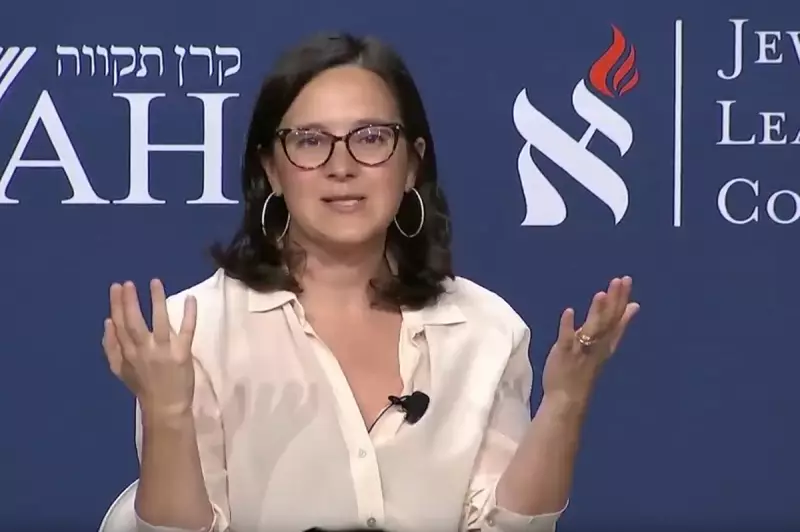
New CBS Chief's Vision Draws Widespread Criticism
CBS News's newly appointed editor-in-chief Bari Weiss has ignited a firestorm of criticism after outlining her vision for the network's future, which includes elevating "charismatic" figures like Alan Dershowitz to represent mainstream American viewpoints.
The controversy emerged from Weiss's appearance at the Jewish Leadership Conference earlier this month, where she sat alongside right-wing commentator Ben Shapiro. During her remarks, the self-described "radical centrist" and "Zionist fanatic" pointed to a gun control debate hosted by her publication, The Free Press, as indicative of her approach for CBS News.
Defining the 'Centre Ground'
Weiss asserted that participants Alan Dershowitz, the 87-year-old former lawyer, and former NRA spokeswoman Dana Loesch represented the "centre left and centre right" of American politics. She claimed their positions reflect "where the vast majority of Americans actually are."
In contrast, Weiss criticised provocateurs including white nationalist Nick Fuentes, former Fox News host Tucker Carlson, misogynist influencer Andrew Tate, and leftist streamer Hasan Piker for attracting large audiences despite not representing mainstream American values.
"I don't think that they represent the values and the worldview of the vast majority of Americans," Weiss stated. "And so this is an opportunity to speak for the 75 percent for the people that are on the centre left and the centre right that still believe in equality of opportunity."
The Backlash Intensifies
The remarks gained widespread attention on Monday evening after non-profit investigative site Drop Site News shared video of Weiss's conference appearance. Founded by former Intercept journalists Ryan Grim and Jeremy Scahill, the publication has covered the Gaza War with a sceptical perspective on Israel.
Journalists and commentators quickly mocked Weiss's characterisation of Dershowitz as both "charismatic" and representative of mainstream America. Southern Poverty Law Center researcher Hannah Gais sarcastically noted: "The kids demand Alan Dershowitz."
New York Times tech reporter Mike Isaac found humour in Weiss's "populist 'we need to elevate the voice of the common man' position" immediately followed by the suggestion of Dershowitz, a celebrity defence attorney and Harvard law professor.
Several critics highlighted Dershowitz's longtime relationship with deceased sex predator Jeffrey Epstein, questioning whether this was appropriate context for a figure being presented as mainstream.
The Financial Backing Question
Drop Site News's Ryan Grim suggested that Weiss likely made the same pitch to Paramount chief David Ellison that secured her the top job at CBS News along with $150 million in funding for her media startup.
"As you're watching this, consider that she likely made this exact pitch to David Ellison and he said, yes, precisely, here is $150 million and the top job at CBS News," Grim observed.
Contrarian podcaster Glenn Greenwald, who has been an outspoken critic of Weiss, questioned both her editorial choices and their audience appeal. He noted that The Free Press debate between Dershowitz and Loesch had attracted only 860 viewers in its first five hours online.
Greenwald also suggested that voices deemed "mainstream enough to be included in The Conversation™ always [have] one thing in common: love of Israel."
Supporters Defend the Vision
Despite the criticism, some commentators championed Weiss's approach. Mediaite's Colby Hall argued that her alternative "isn't moderation. It's transparency."
"Put people with genuinely different worldviews in the same studio and let them argue with full force, in good faith, on air, where viewers can see how the arguments are made," Hall stated. "Actual pluralism, not neutrality theater."
Weiss, who founded the anti-woke digital outlet The Free Press before joining CBS News, emphasised that her goal wasn't to create traditional "centrist news" operations, which she claimed had "all failed" because they were like "trying to force feed spinach down someone's throat."
Instead, she explained her mission involved "redrawing the lines of what falls in the 40-yard lines of acceptable debate" in American politics and culture, while insisting this wasn't meant in a "censorious gatekeeping way."
The controversy marks the latest in a series of contentious moments for Weiss since assuming leadership of the Tiffany Network's news division, demonstrating the challenges facing traditional media outlets as they attempt to redefine their approach in an increasingly polarised landscape.





